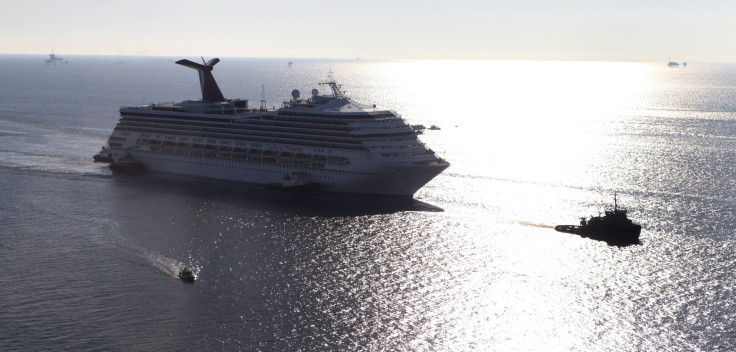Cruise Passengers Get ‘Bill Of Rights,’ But Critics Are Skeptical Of The Wording

Cruise Lines International Association, or CLIA, announced this week that its board of directors had approved the adoption of a “Cruise Industry Passenger Bill of Rights,” detailing the industry’s “commitment to the safety, comfort and care of guests.” The announcement comes on the heels of a series of high-profile cruise ship mishaps over the last year and a half that have put the industry’s safety record in jeopardy.
The “bill” was largely seen as a reaction to pressure from New York Sen. Charles Schumer, who said in March that cruising had become “the Wild West of the travel industry” because it operates “outside the bounds of U.S. enforcement.” Following the widely publicized Carnival Triumph fiasco, he called on cruise operators to voluntarily adopt “a bill of rights” similar to one that he helped create for the airline industry.
Many, including the CEO of industry-watcher Cruise Critic, Carolyn Spencer Brown, believed Senator Schumer was showboating, and thought little would come of his request. “The cruise industry is so much more complicated than the airline industry, though anything that happens to make ships safer is obviously a good thing,” she told International Business Times in March. Two months later, however, the industry appears to have adopted a bill nearly identical to the one Schumer had outlined.
CLIA, the industry’s largest trade association, said all North American member cruise lines had immediately adopted the Schumer-inspired Bill of Rights, adding that it would soon submit the rules to the International Maritime Organization for formal global recognition. The association added that it had already provided to its nearly 14,000 travel agent members materials to communicate the Passenger Bill of Rights to current and prospective customers looking to book a cruise.
“The Cruise Industry Passenger Bill of Rights codifies many longstanding practices of CLIA members and goes beyond those to further inform cruise guests of the industry’s commitment to their comfort and care,” said Christine Duffy, president and CEO of CLIA. “By formally adopting industry practices into a Passenger Bill of Rights, CLIA is further demonstrating consistent practices and transparency across CLIA member lines. The cruise industry is committed to continuing to deliver against the high standards we set for ourselves in all areas of shipboard operations.”
Included in the new “bill” is the right to disembark a docked ship if essential provisions cannot adequately be provided onboard; the right to a full refund for a trip that is canceled due to mechanical failures (or a partial refund for a voyage that is terminated early due to mechanical failures); the right to timely information updates as to any adjustments in the itinerary; the right to a ship crew that is properly trained for medical emergencies and evacuation procedures; and the right to transportation and lodging if a cruise is terminated early due to mechanical failures. Each cruise line is required to publish these rights on their respective websites.
Many of the changes reflect lessons learned from Carnival Triumph (the right to timely information) and Costa Concordia (evacuation procedures) as well as protections afforded to airline passengers (the right to disembark).
Schumer said he welcomed CLIA’s announcement, but added that he was not completely satisfied. “While I believe that this Passenger Bill of Rights is a step in the right direction toward increased accountability for the cruise industry and ensuring the safety and well-being of its passengers, I still have many remaining questions, both on the content and how the bill of rights will be enforced,” Schumer said in an email to International Business Times. “I will be asking the industry to respond to a set of detailed questions, and will continue to insist on changes to ensure the safety and well-being of their passengers.”
Sen. Schumer is interested in poking holes in some of the more loosely worded provisions. Here’s a verbatim look at the International Cruise Line Passenger Bill of Rights, as laid out by CLIA:
1. The right to disembark a docked ship if essential provisions such as food, water, restroom facilities and access to medical care cannot adequately be provided onboard, subject only to the Master’s concern for passenger safety and security and customs and immigration requirements of the port.
2. The right to a full refund for a trip that is canceled due to mechanical failures, or a partial refund for voyages that are terminated early due to those failures.
3. The right to have available on board ships operating beyond rivers or coastal waters full-time, professional emergency medical attention, as needed until shore side medical care becomes available.
4. The right to timely information updates as to any adjustments in the itinerary of the ship in the event of a mechanical failure or emergency, as well as timely updates of the status of efforts to address mechanical failures.
5. The right to a ship crew that is properly trained in emergency and evacuation procedures.
6. The right to an emergency power source in the case of a main generator failure.
7. The right to transportation to the ship’s scheduled port of disembarkation or the passenger’s home city in the event a cruise is terminated early due to mechanical failures.
8. The right to lodging if disembarkation and an overnight stay in an unscheduled port are required when a cruise is terminated early due to mechanical failures.
9. The right to have included on each cruise line’s website a toll-free phone line that can be used for questions or information concerning any aspect of shipboard operations.
10. The right to have this Cruise Line Passenger Bill of Rights published on each line’s website.
© Copyright IBTimes 2024. All rights reserved.






















